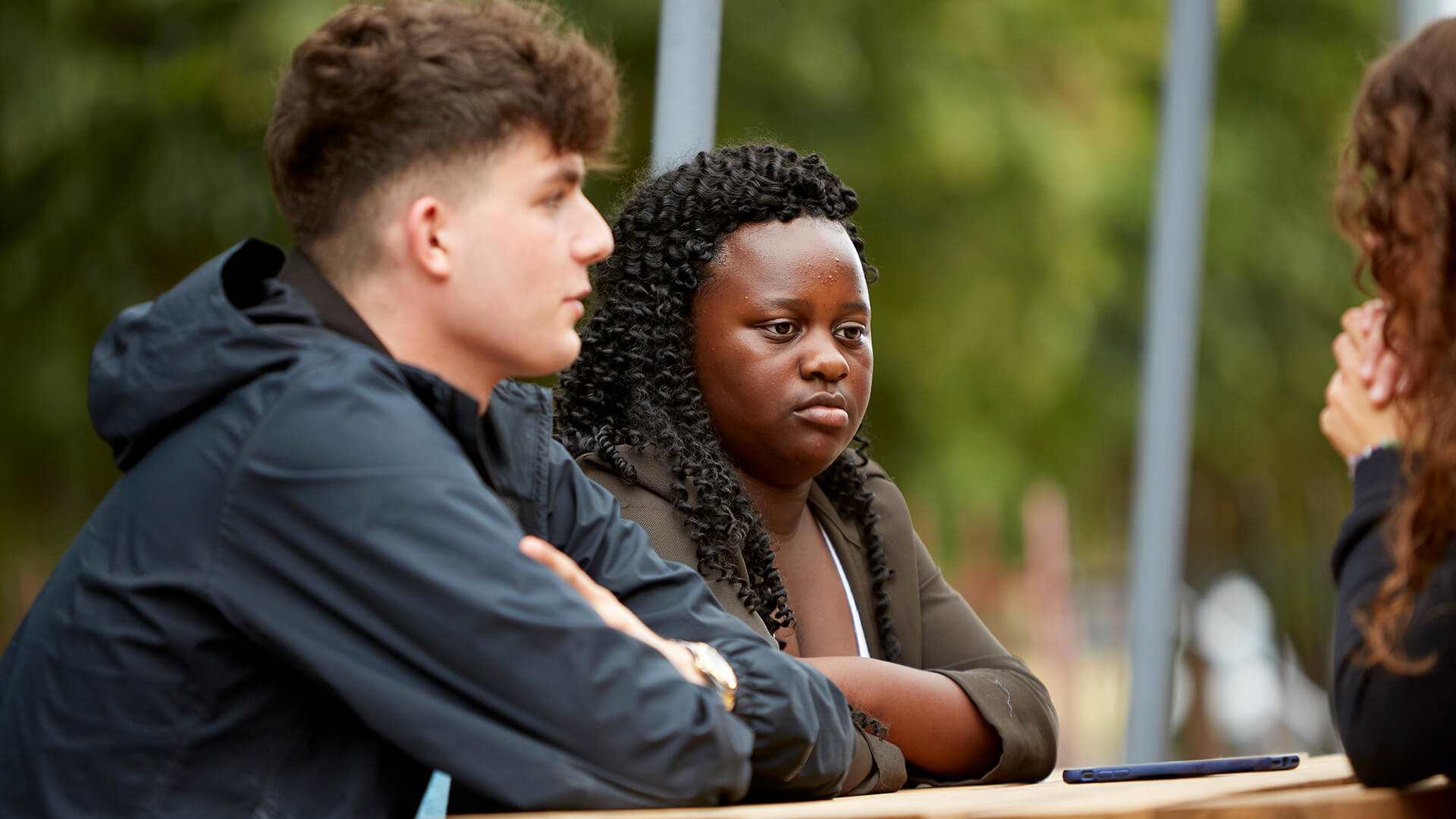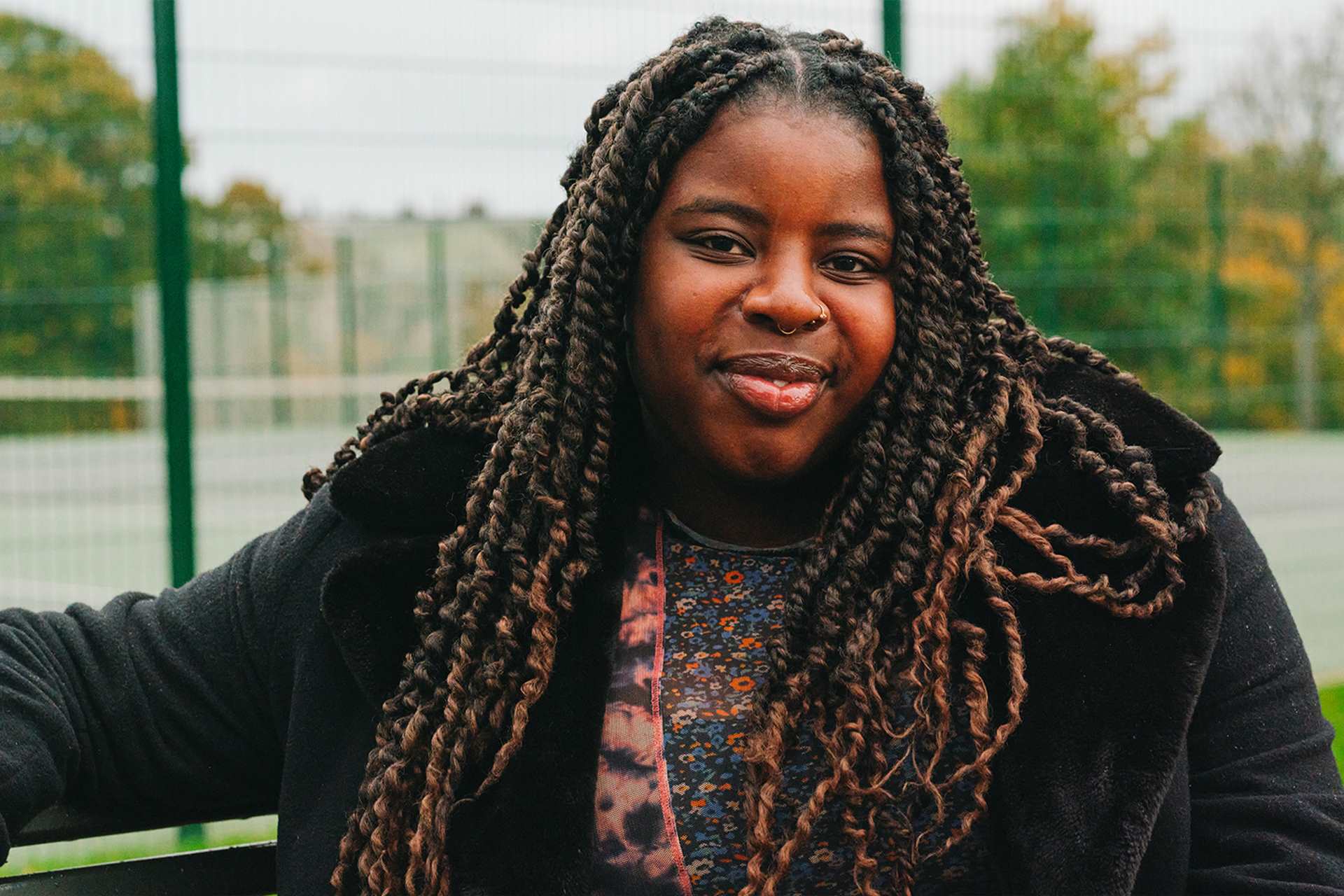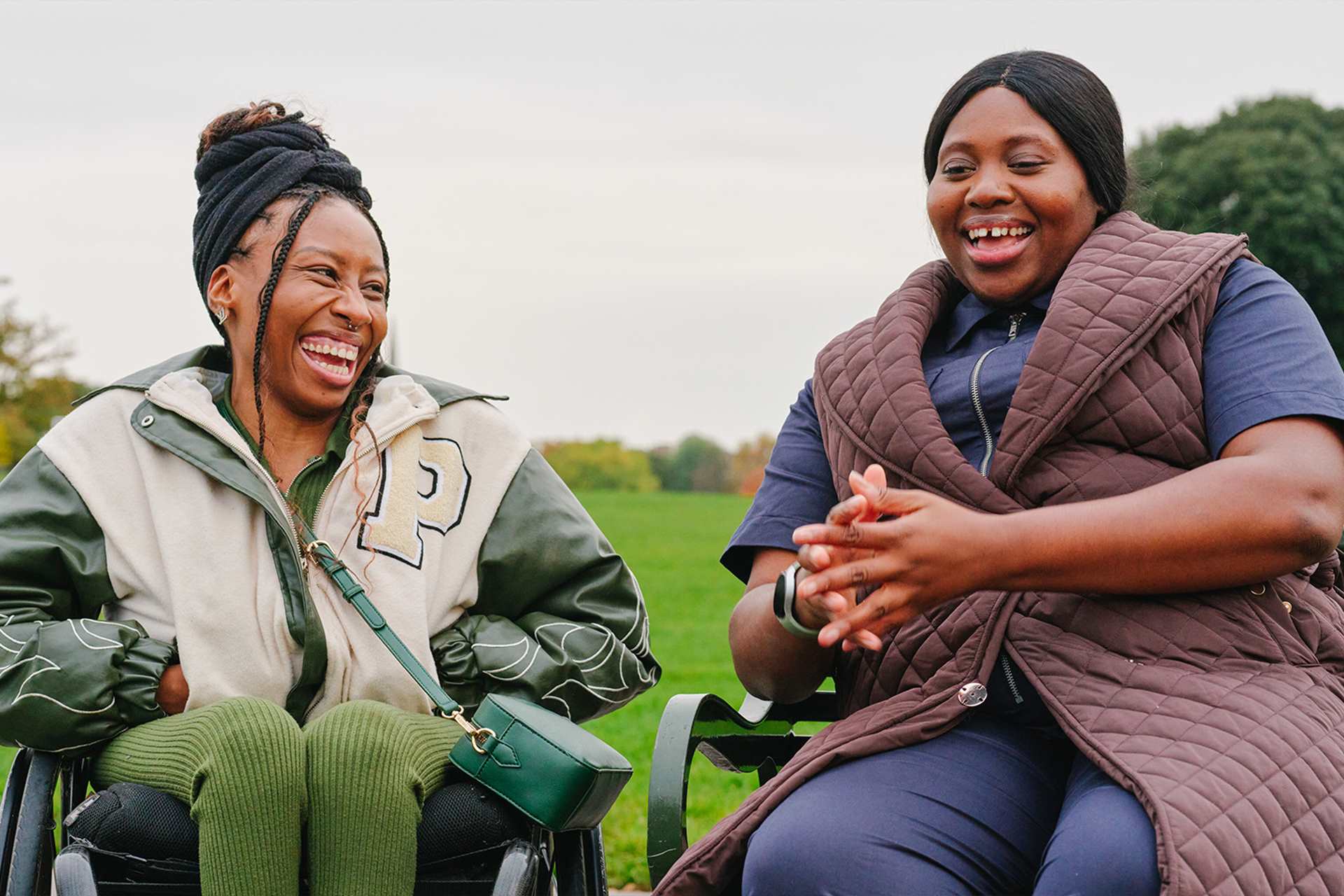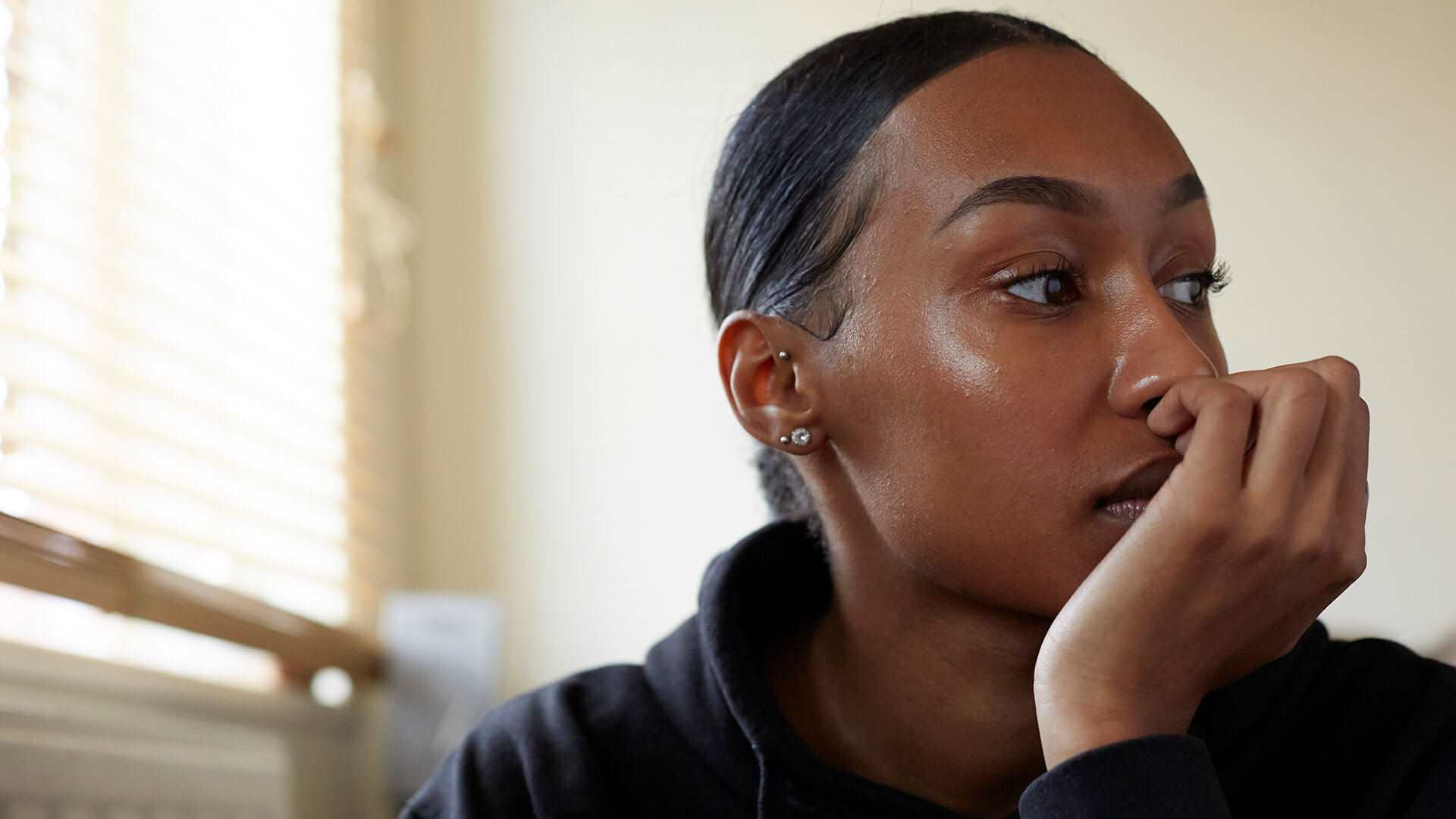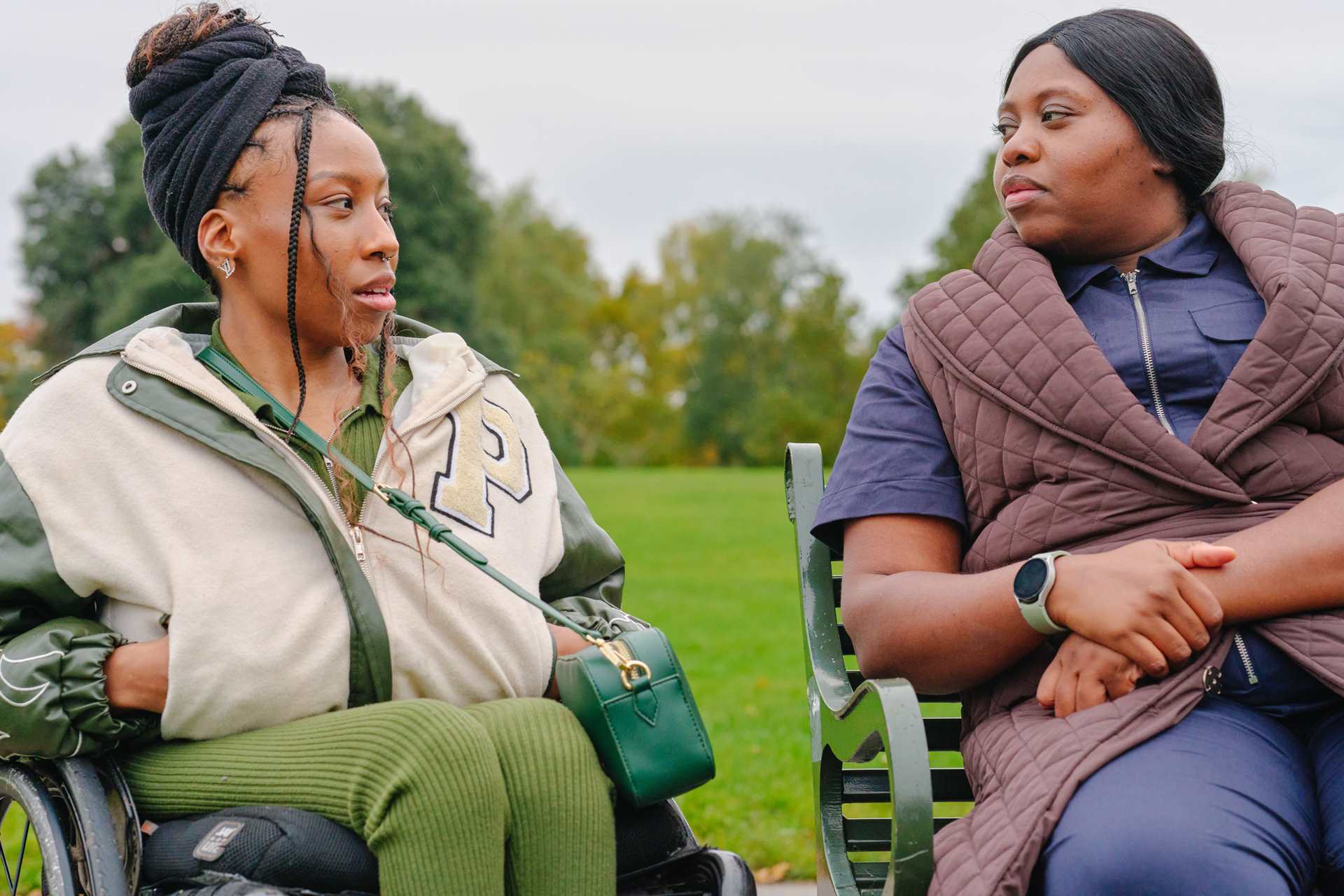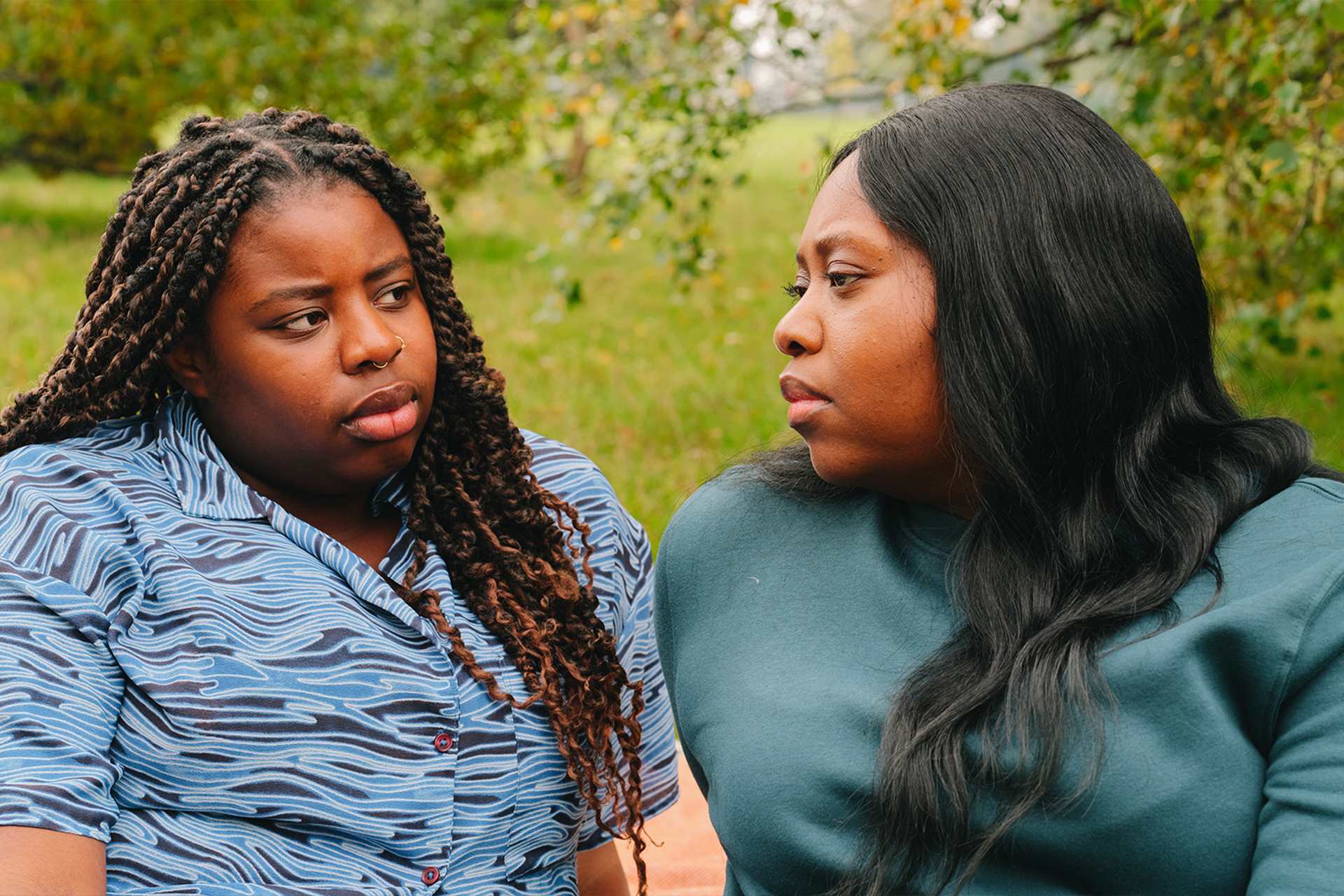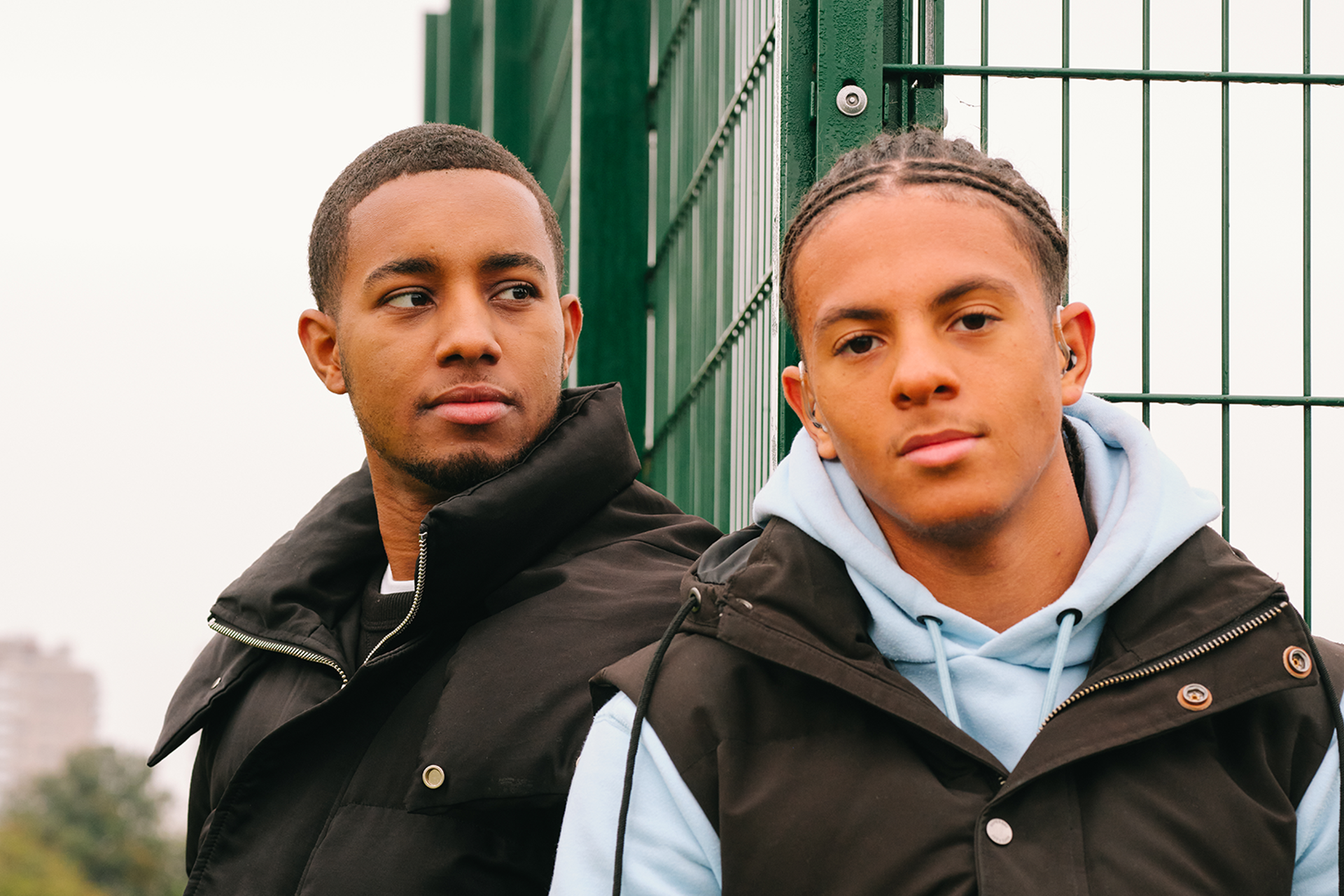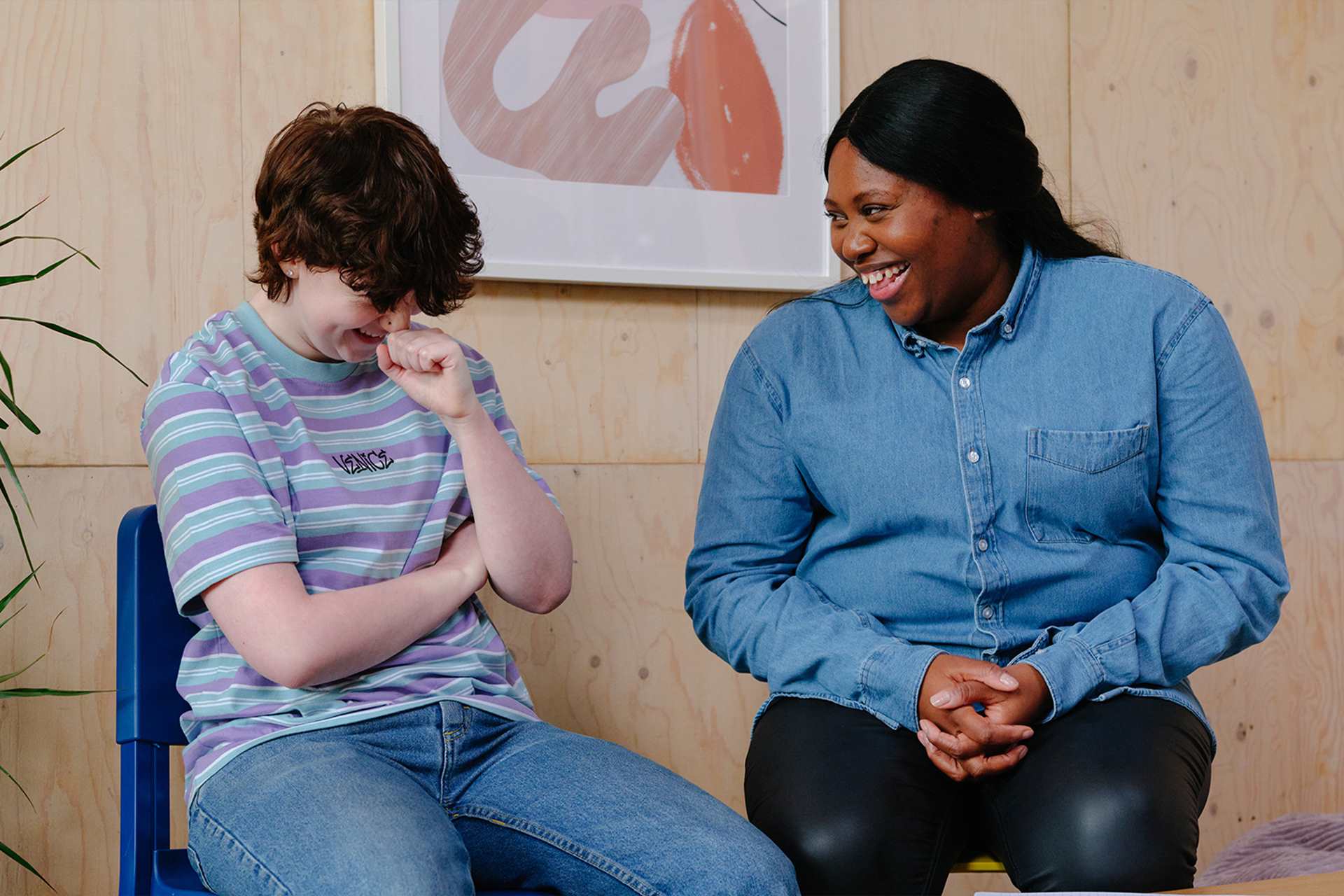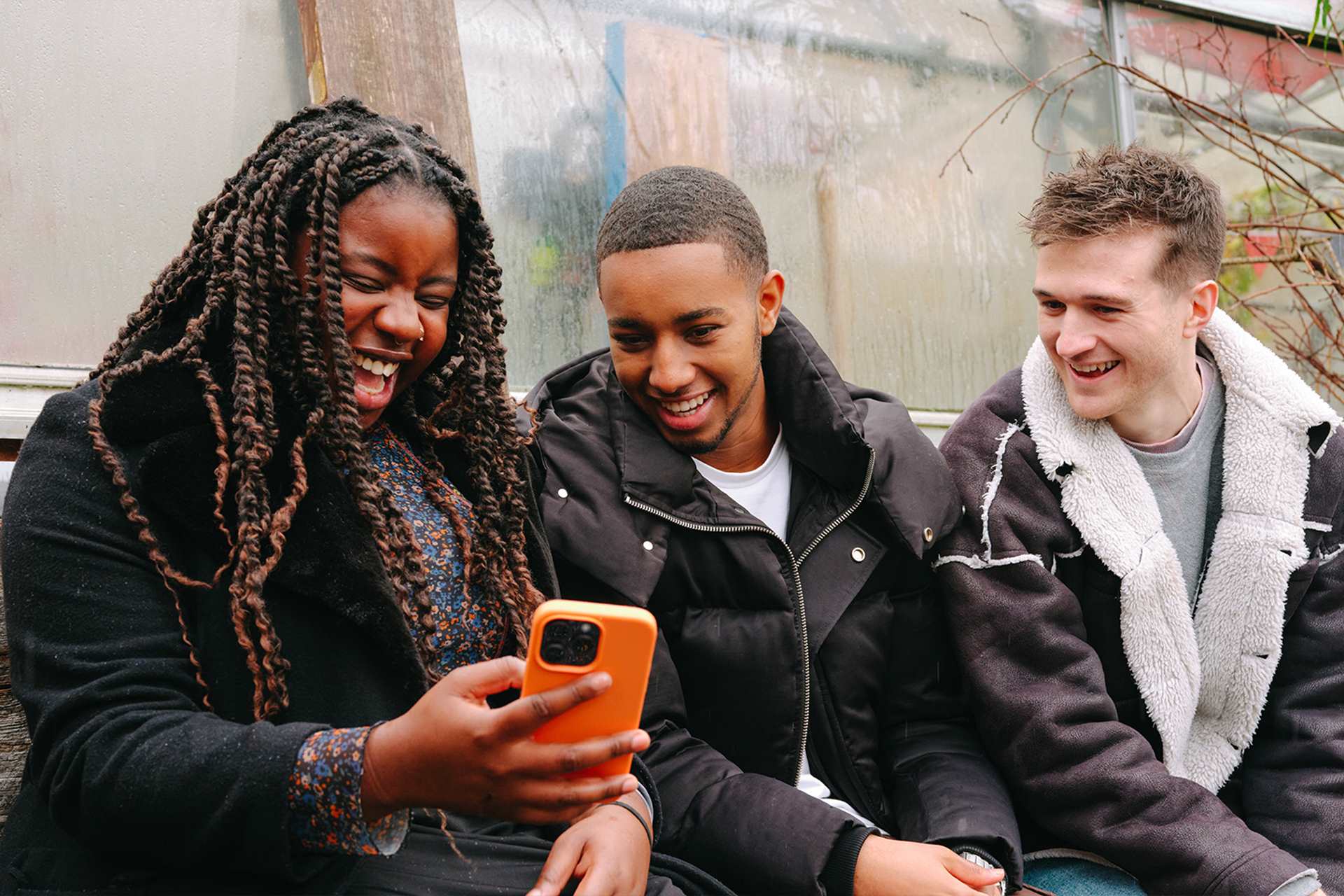What is anorexia nervosa?
Anorexia (or anorexia nervosa) is a type of eating disorder where you’re not eating enough food. It’s not just about keeping slim or dieting – it’s a serious condition. And it’s usually linked to low self-esteem or worries about body image.
People with anorexia try to keep their weight very low by limiting how much they eat, doing too much exercise, or both. They tend to have “rules” about what they eat, or when and where they eat because they’re worried about gaining weight and often think they’re larger than they are.
It’s not just girls that are affected by anorexia. In fact, about 25% of people who experience eating disorders like anorexia are male. It can affect anyone, no matter your age, gender, ethnicity or background.
If you think you’re struggling with anorexia, you need to get help as soon as possible. With the right help, you can recover and get your life back on track.
Signs and symptoms of anorexia
People struggling with anorexia experience physical changes as well as changes to their feelings and behaviours. If you notice any of the signs below, speak to a doctor to get a full diagnosis and find the right help.
- trying to lose weight by eating less and/or exercising too much
- thinking a lot about calories and what food you eat
- having strict rules around eating and mealtimes
- trying to control your weight by “purging” (making yourself sick or using laxatives)
- trying to control your weight by over-exercising
- feeling panicky about eating in front of others or having a big meal
- feeling fat and scared to gain weight, even though people tell you you're too thin
- obsession with body image, weighing/checking your body and comparing your body to others
- losing interest in things you usually enjoy
- feeling low in mood and energy
- feeling more irritable than usual
- losing lots of weight quickly
- irregular periods or periods stopping entirely
- loss of interest in sex or feeling unable to enjoy sex
- poor circulation and feeling cold all the time
- growing new downy hair on your body
- poor sleep and concentration
- bloating and digestive issues like constipation
- effects on hormone levels and puberty
Getting help and support for anorexia
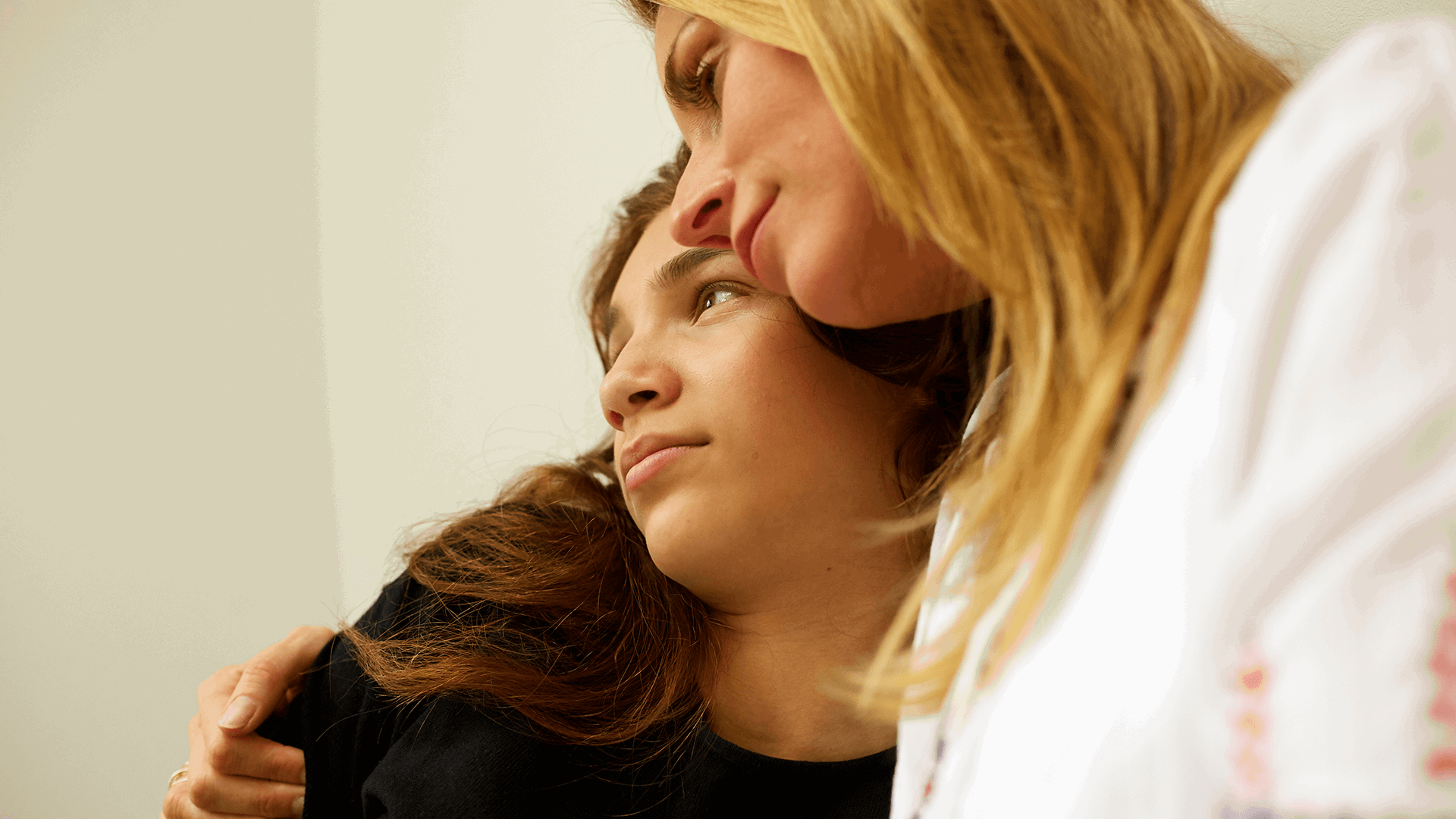
If you think you might be struggling with anorexia, talk to someone you trust, like a friend, relative, counsellor or teacher. They can help you get the right support. Admitting that you’re struggling isn’t easy, but it’s nothing to be ashamed about, and opening up is the first step to getting better.
If things feel out of control, restricting what you eat might seem like the answer. But this is not a healthy or long-term solution. Anorexia is a serious condition, so it’s crucial that you talk to a professional to develop healthier ways of coping. Here are some places you can get help.
Speak to your GP. They aren’t experts in anorexia so won’t be able to treat you themselves, but they can help you get the right treatment and support.
They’ll refer you to a specialist eating disorder service, a psychiatrist, or another expert who can help. If you don’t get a referral to a specialist service, it’s okay to ask for one.
If you’re in education, you can access support through your school, college or university counselling service. Speak to whoever’s in charge of student wellbeing so they can support you to get treatment.
Swan groups are a welcoming online space for anyone who has (or thinks they have) anorexia. The sessions are run and moderated by Beat staff, and offer a confidential and safe space to share your experiences with other people in similar situations.
They run every Monday from 6:45pm-7:45pm and you can attend as often or as little as you like.
Treating anorexia
Treatment usually begins by assessing how much anorexia is affecting your physical health. You'll then be supported to make sure you're getting enough to eat and learn what nutrition your body needs. In most cases, you can stay at home during your treatment. But if your weight is dangerously low, you might be admitted to hospital.
Treatment can include:
- cognitive behavioural therapy (CBT)
- group and family therapy
- working with a dietician
- support from a mental health team
If your doctor thinks you’re also struggling with depression, anxiety or another mental health condition, they might also offer you medication.
Admitting that I needed help is one of the toughest things I’ve ever had to do, but being able to live my life without the hold of my eating problems far outweighs the anxiety and fear I felt starting CBT. I’m far healthier, happier, and I’m living my life the way I want to. Reaching out and starting therapy was one of the best decisions I ever made and, given the choice, I would always choose it again.
Hope Virgo's story of recovery
Hope Virgo found it hard to express her emotions from a young age. As a teenager, she started eating less and less, until a point came where her heart was close to failing and she was admitted to hospital to be treated for anorexia.
Watch Hope tell her story in her own words.
Real stories about anorexia
How to support someone struggling with anorexia
If someone you know has an eating disorder, it's normal to feel worried, frustrated, or powerless. But there are things you can do to support them.
If someone opens up to you, that’s a sign that they trust you. And by listening to their concerns without judgement, you’re already providing valuable support. It can be tough to hear someone talk about themselves in this way, but try not to advise or criticise. Tell them you're glad they opened up and that you're here for them – no need to have all the answers.
Let them know their experience is valid and acknowledge that what they’re going through is tough. Instead of making assumptions or trying to interpret their behaviour, ask them how they’re feeling and what they’re thinking.
It's okay to feel frustrated, but patience goes a long way. Don't push for change. It might take time for them to accept they’re struggling with anorexia and need to seek help.
Ask them what support they’d like from you. This could be going with them to a doctor’s appointment, finding helpful resources or supporting them at mealtimes. They may have a preferred way of speaking about anorexia, like referring to it as a third person. This can help you both recognise anorexia as separate to your relationship and know that no one is to blame.
Encourage them to speak to an adult they trust, like a relative, carer, teacher or counsellor.
You can also advise them to speak to a doctor for professional help. They might not want to but it’s important to try because seeking help is a crucial step towards recovery. If they refuse to see a doctor, you could suggest they contact a helpline instead.
They might not want to join in group activities, but keep asking them and stay in touch. This will reassure them that you’re there and remind them that you value their friendship. Try arranging activities that don’t involve food or exercise, like playing a game, watching your favourite film or series, or arts and crafts.
It’s important to avoid discussing weight, body shape, food or diets. This can trigger difficult emotions for them. Try not to focus or comment on their appearance – how someone looks on the outside doesn’t always reflect how they feel inside.
It can be distressing to hear that someone you know is struggling with anorexia. You might feel like it’s your responsibility to help them, but you don’t have to do this alone. You can always speak to someone you trust to get more support, or contact a helpline.
More help and advice
We have information and advice on a range of subjects, which you may find helpful.
Get help now
If you or someone you know is struggling with anorexia, these organisations and helplines can support you.
-
Beat
Offers information and support for anybody affected by eating disorders.
One-to-one web chat available. They also run a range of online support groups, which are all fully moderated and anonymous.
Enter your postcode in the HelpFinder to see what eating disorder support is available in your area.
View their information on helpline accessibility and confidentiality.
- Opening times:
- 365 days a year - weekdays (9am - 8pm); weekends (4pm - 8pm)
-
Childline
If you’re under 19 you can confidentially call, chat online or email about any problem big or small.
Sign up for a free Childline locker (real name or email address not needed) to use their free 1-2-1 counsellor chat and email support service.
Can provide a BSL interpreter if you are deaf or hearing-impaired.
Hosts online message boards where you can share your experiences, have fun and get support from other young people in similar situations.
- Opening times:
- 24/7
-
Youth Access
Provides information about local counselling and advice services for young people aged 11-25.
Put in your location and what you need help with into their 'Find help' search, and see what services are available in your area.

This page was reviewed in April 2024.
It was co-created with young people with lived experience of anorexia nervosa.
We will next review the page in 2027.
YoungMinds is a proud member of PIF TICK – the UK's quality mark for trusted health information.
Whether you love the page or think something is missing, we appreciate your feedback. It all helps us to support more young people with their mental health.
Please be aware that this form isn’t a mental health support service. If you are in crisis right now and want to talk to someone urgently, find out who to contact on our urgent help page.


